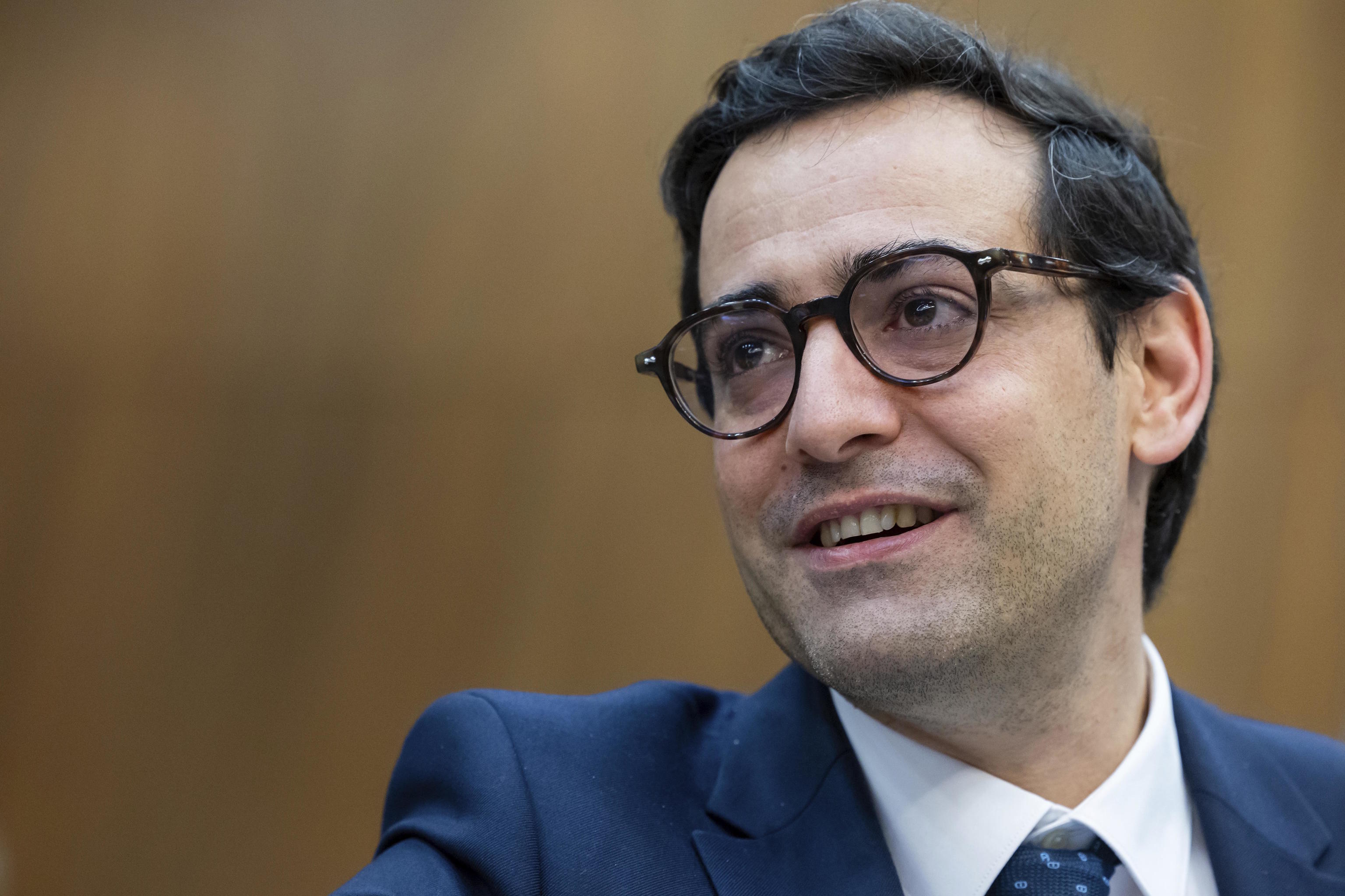Stéphane Séjourné (Versailles, 1985) presents in Brussels on Tuesday the first list of 47 strategic projects of critical raw materials, a fundamental measure with which the European Commission aims to reduce its dependence on external sources in this essential area. From China, of course, but also from many African countries, ensuring crucial processes such as rearmament in the face of the Russian threat or the competitiveness of the automotive sector. Before unveiling the ambitious plan, the Executive Vice President of the European Union for Prosperity and Industrial Strategy offers an interview to EL MUNDO, along with other European media, emphasizing the significant role of Spain.
"Spain is very important as it has projects for the extraction, transformation, and recycling of seven critical raw materials," notes the French Vice President. The list being made public today shows that Spanish territory accounts for 15% of all EU projects, including elements such as lithium, nickel, cobalt, copper, or tungsten, essential products for electric mobility and Defense.
The projects selected by the EU in Spain, all of which are already underway, are distributed among Extremadura, Andalusia, Galicia, and Castilla-La Mancha, and will be part of these 47 initiatives with access to funding of up to 27 billion euros. Moreover, they will receive significant bureaucratic and administrative facilitations. "We want to reduce the time it takes to start processes: concession processes will not exceed 27 months for extraction projects and 15 months for other activities. We are trying to move as quickly as possible. Currently, there are deadlines that even reach 10 years depending on regional, national, and European legislation," Séjourné explains.
This is crucial as it represents a significant removal of barriers, providing certainty to companies and potential investors, and also somewhat bypassing cumbersome local and national regulatory processes. Although the French Vice President speaks more about collaboration, not only in bureaucratic matters but also in social aspects. It will be necessary, he argues, to convince the local population where these projects are located, which often face rejection due to their impact on the area, that they are essential for Europe. "In terms of social acceptance, we will do everything possible to help project leaders at local and national levels explain the importance of the projects and European interests. What I am doing right now is also part of this because sometimes projects are launched by the European Commission without the necessary communication. Here, we want to ensure the opposite," continues the French Vice President.
"We want abundant raw materials that are not expensive for the automotive industry or the battery industry. Raw materials that contribute to the competitiveness of our industry in these sectors. We want to avoid ending up in a delicate situation in the future, these raw materials cannot be tomorrow's Russian gas. In summary: we will do everything possible to prevent these dependencies from returning, given the geopolitical situation is so uncertain," Séjourné emphasizes, repeatedly referring to the EU's dependence.
Some data provided by Séjourné's office to illustrate this situation. Spain has the aforementioned tungsten or wolfram mine, a material also produced in Portugal and Austria, but European dependence on this material reaches 80%. And magnesium, which is also used in Defense and will be crucial for the rearmament process, dependence is close to 100%, with China standing out. The Asian country dominates rare earths and critical raw materials, a fact that greatly concerns Brussels. "The significant increase in raw materials coming from China and the restrictions imposed by the United States due to trade tensions between these two countries only increase Europe's dependence on China. This should not happen; we must move even faster," insists the French Vice President.
"We must explain things; the Commission has to explain the approach we are taking, focusing on reducing dependencies and ensuring supply. Therefore, we must be very clear in our raw materials strategy and reach the general public. A quick example regarding lithium: today, we depend on lithium exports by 81%, and 100% for its processing. According to our goals for 2030, we truly aim to be self-sufficient in this regard. We have mines in Portugal, Spain, Germany, Finland, and the Czech Republic. As for processing, where we currently depend 100% on China, we want to bring it back to Europe. We already have it in France and Portugal, and recycling is done in Italy, Finland, and Sweden. As you can see, our strategy for lithium is to achieve self-sufficiency in this material by 2030, and all the projects we have selected are moving in that direction: production, processing, and recycling, all within Europe," Séjourné emphasizes.
Overall, the 47 strategic projects are located in 13 EU member states: Belgium, France, Italy, Germany, Estonia, Czech Republic, Greece, Sweden, Finland, Portugal, Poland, Romania, and, of course, Spain. They cover 14 of the 17 strategic raw materials included in the Critical Raw Materials Regulation (CRMA) and, in total, there are 22 lithium points, 12 nickel, seven manganese, and 11 graphite. Additionally, there is only one magnesium project, located in Romania, and the three mentioned tungsten projects. The selection of all these projects is based on ensuring the supply of raw materials while meeting environmental, social, and governance criteria, as explained by the Vice President's team.
